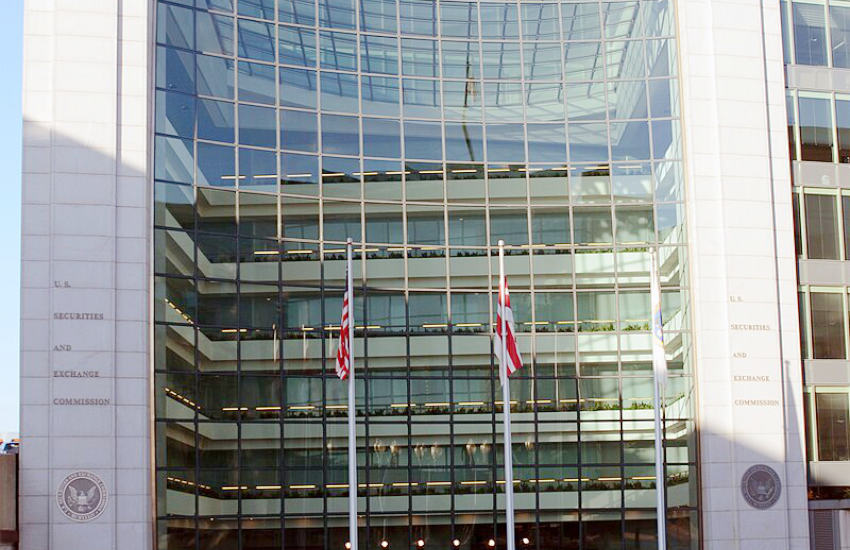SEC Takes Significant Step Towards Clarity in Cryptocurrency Regulation
In a move that many in the cryptocurrency community have long awaited, the Securities and Exchange Commission (SEC) has provided much-needed regulatory clarity regarding mining activities in the world of cryptocurrencies. As of yesterday, the SEC released a statement indicating that both solo and pooled mining for proof of work (PoW) blockchains will generally not be considered as involving securities. This decision marks a pivotal shift toward understanding how various crypto activities fall under existing securities laws.
Understanding the SEC’s Position on Mining
The central premise behind the SEC’s recent note hinges on the expectations of profit associated with mining activities. According to the Howey Test – a standard used to determine whether an asset is classified as a security – the expectation of profit must derive from the efforts of third parties. In the case of individual and pooled miners, the SEC asserts that any profit expectations are primarily rooted in the miners’ own efforts, rather than those of others. This distinction is crucial, as it helps delineate which activities are subject to stringent securities regulations.
A Change in Leadership, A Change in Direction
Acting SEC Chair Gary Gensler and Commissioner Hester Peirce have voiced concerns regarding their predecessors’ approach to cryptocurrency regulation. Under the previous administration, the SEC largely relied on enforcement actions as a means to regulate the burgeoning cryptocurrency landscape, leaving many participants in the dark about the legal status of their activities. This latest note is an attempt to correct that trajectory by fostering a more transparent regulatory environment that can accommodate the evolving nature of blockchain technology and its applications.
The Uncertainty Surrounding Proof of Stake
While the latest SEC announcement brings clarity to proof of work mining, the bigger question looms around proof of stake (PoS) mechanisms. Today, a significant number of blockchains use PoS for network security, raising the stakes for how these activities will be treated legally. Early indications suggest that staking may not be classified as a security because its primary purpose is to secure the network rather than generate profit. However, this perspective remains untested and speculative.
In contrast, scenarios like Staking-as-a-Service—a model where users delegate their tokens to a third party for staking—could be interpreted differently. The delegation of coins to a third party introduces the question of whether profits arise from the efforts of that third party, potentially meeting the criteria for securities classification.
Lessons from Recent Regulatory Actions
The SEC’s regulatory landscape is rife with lessons, particularly highlighted by the closure of Kraken’s staking program two years ago. In a pointed dissent, Commissioner Peirce criticized the SEC’s decision as an example of “paternalistic and lazy regulation.” Her call for clearer guidelines underscored the complications surrounding staking, including whether regulations should apply to staking programs as a whole or if they should be evaluated on a token-by-token basis.
Legislative Responses to Staking Activities
The legislative arena is also engaging with these pressing questions. The recently passed FIT Act for digital assets included a noteworthy clause concerning staking. This legislation categorizes activities directly related to the operation of blockchain systems—like mining, validating, and staking—as not being investment contracts. However, this exemption appears to apply mainly to individuals performing staking directly and does not inherently cover Staking-as-a-Service models, which may complicate future regulatory considerations.
Looking Ahead
As the SEC continues to navigate the complexities of cryptocurrency regulation, it must strike a balance between fostering innovation and ensuring consumer protection. The recent note on mining activities provides a critical foundation for approaching other areas such as staking. However, without clear, consistent guidance on various mechanisms, stakeholders across the cryptocurrency spectrum may find themselves in a state of conjecture, awaiting the next regulatory development.
In a rapidly evolving landscape that blends technology and finance, regulatory clarity will be key to facilitating growth while protecting investors and upholding market integrity. As participants in this space remain vigilant, they continue to watch closely for the SEC’s next steps in defining the regulatory future of cryptocurrencies.

